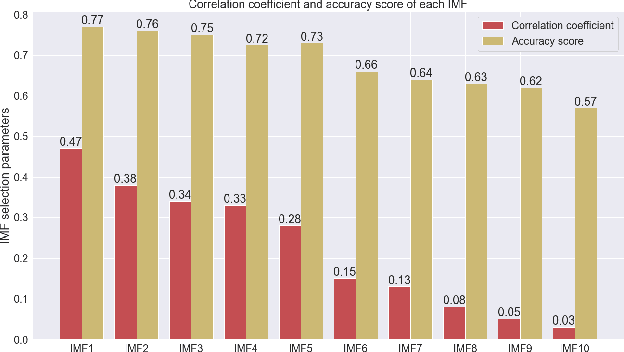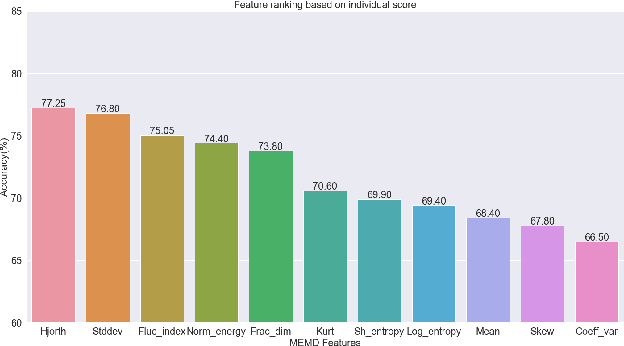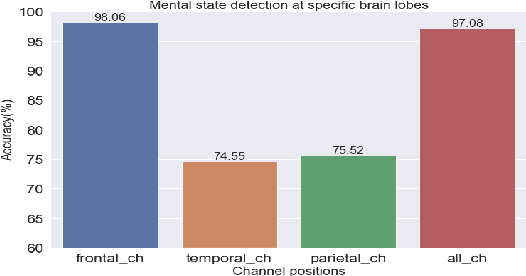Multivariate Empirical Mode Decomposition of EEG for Mental State Detection at Localized Brain Lobes
Paper and Code
Jun 02, 2022



In this study, the Multivariate Empirical Mode Decomposition (MEMD) approach is applied to extract features from multi-channel EEG signals for mental state classification. MEMD is a data-adaptive analysis approach which is suitable particularly for multi-dimensional non-linear signals like EEG. Applying MEMD results in a set of oscillatory modes called intrinsic mode functions (IMFs). As the decomposition process is data-dependent, the IMFs vary in accordance with signal variation caused by functional brain activity. Among the extracted IMFs, it is found that those corresponding to high-oscillation modes are most useful for detecting different mental states. Non-linear features are computed from the IMFs that contribute most to mental state detection. These MEMD features show a significant performance gain over the conventional tempo-spectral features obtained by Fourier transform and Wavelet transform. The dominance of specific brain region is observed by analysing the MEMD features extracted from associated EEG channels. The frontal region is found to be most significant with a classification accuracy of 98.06%. This multi-dimensional decomposition approach upholds joint channel properties and produces most discriminative features for EEG based mental state detection.
 Add to Chrome
Add to Chrome Add to Firefox
Add to Firefox Add to Edge
Add to Edge